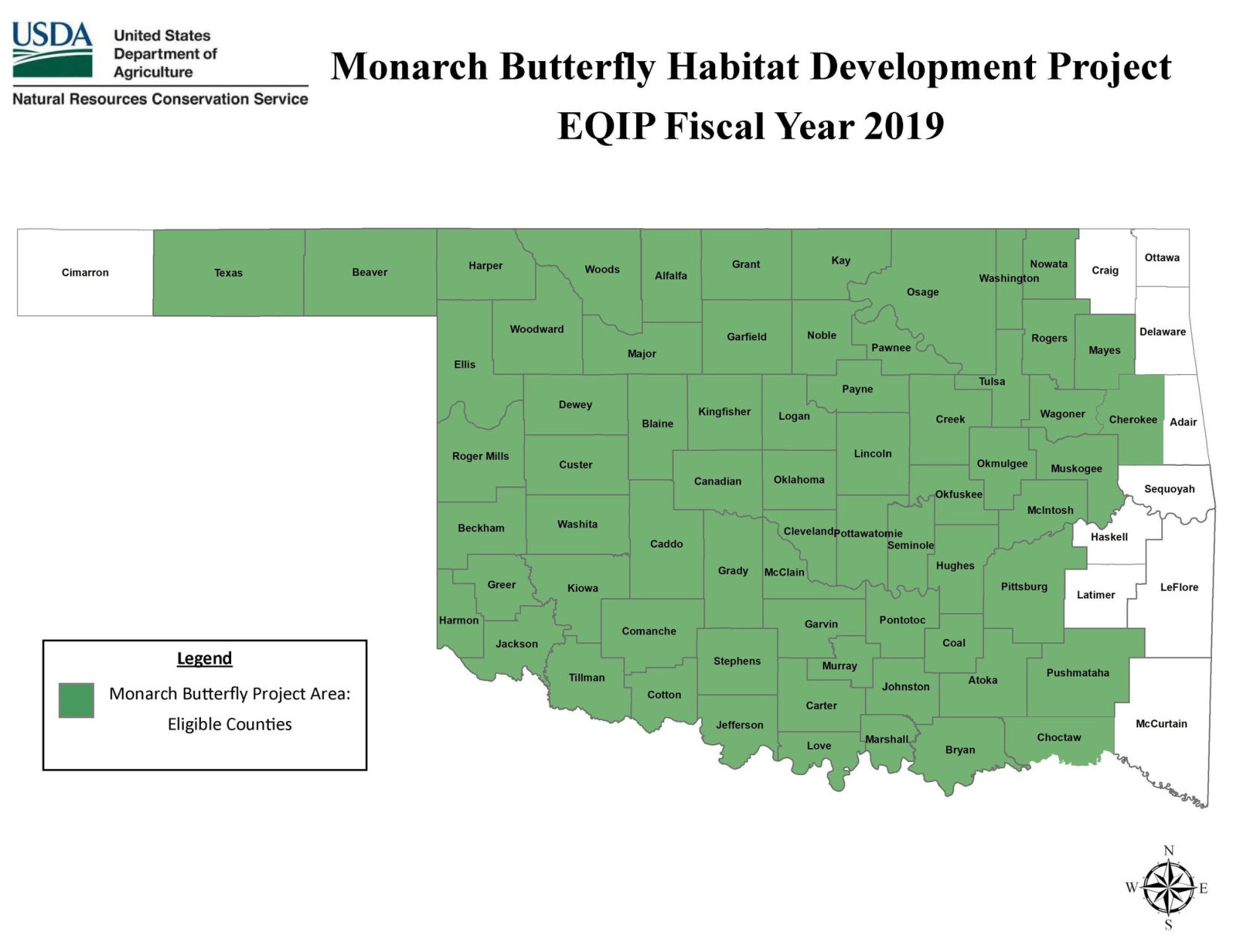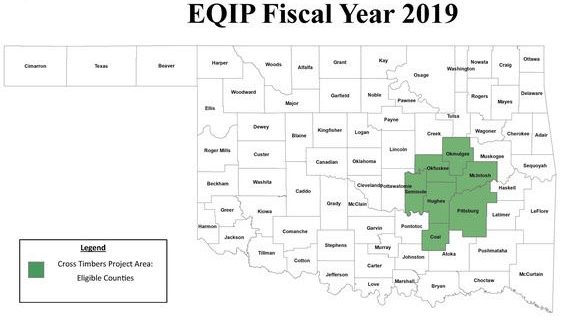With a Dec. 21 deadline approaching, Pheasants and Quail Forever is encouraging farmers and ranchers to consider utilizing the USDA’s Natural Resources Conservation Service program called Environmental Quality Incentives Program. EQIP provides financial and technical assistance to establish habitat that benefits monarch butterflies and other wildlife.
Dustin Lamoreaux, coordinating wildlife biologist, said “EQIP helps landowners increase and manage monarch habitat on private lands.” Milkweed and other nectar-rich plants provide food for Monarchs and other pollinators, such as honey bees, that are vital to agriculture. To accelerate conservation benefits to monarch butterflies, the Monarch Butterfly Habitat Project was established. Lamoreaux states, “there are many ways landowners can establish monarch-friendly habitat including but not limited to: brush management, prescribed burning, prescribed grazing, and monarch plantings.”
Establishing and restoring native grasslands, with milkweed and other nectar-rich plants, within Oklahoma is critically important because it is in the heart of the butterfly’s habitat and migration corridor. Milkweed also provides homes for beneficial insects that control the spread of destructive insects. Also, conservation practices that provide benefits for pollinators also help reduce erosion, increase soil health, control invasive species, provide quality forage for livestock and make agricultural operations more resilient and productive.
NRCS State Conservationist Gary O’Neill, said, “This project focuses on improving fall nectaring habitat for monarchs on existing native grasslands. I hope that producers who have heard about the Monarch programs in the past but haven’t applied will take another look at how it could fit into their operations.” Pollinator plantings can be placed along field borders, in buffers around waterways or wetlands, in pastures, and in other suitable locations. O’Neill also stated, “NRCS also can help producers manage their pasture and rangeland in ways that increase critical populations of milkweed and nectar-rich plants while also improving the health of their rangelands.”
NRCS accepts applications on a continuous basis, but only applications filed by Dec. 21 are eligible for the next round of funding throughEQIP. USDA is an equal opportunity employer, provider and lender. For more information about any NRCS programs, please check with your local USDA field office, or contact Dustin Lamoreaux at 405-714-7893 or email at [email protected] more information specifically about the Monarch Butterfly Habitat Project or wildlife habitat assistance.

